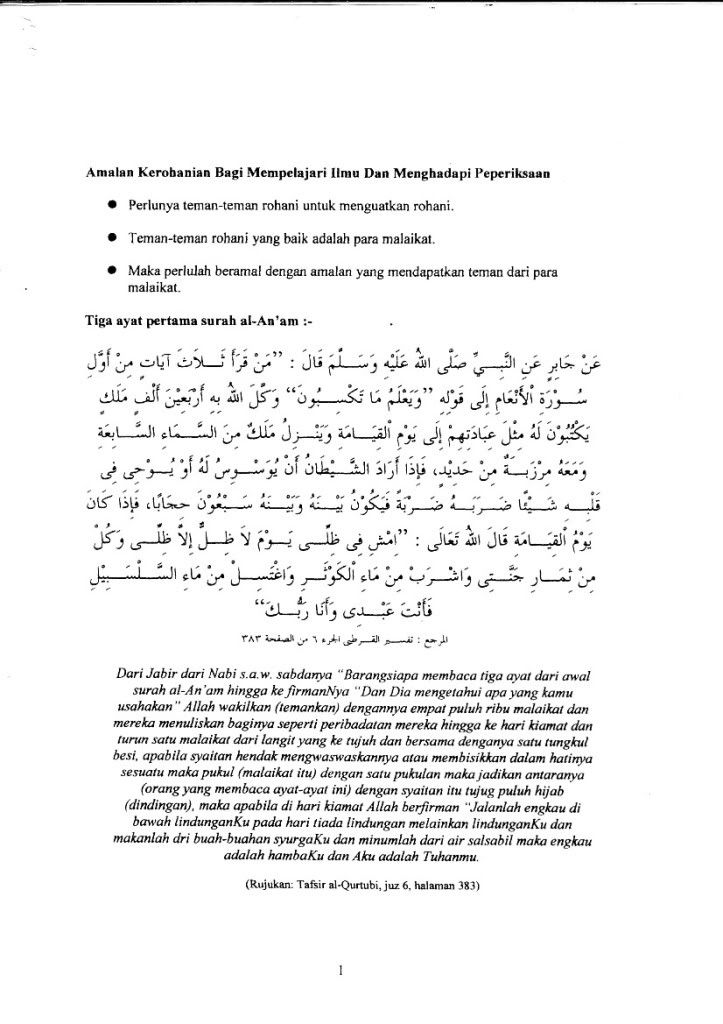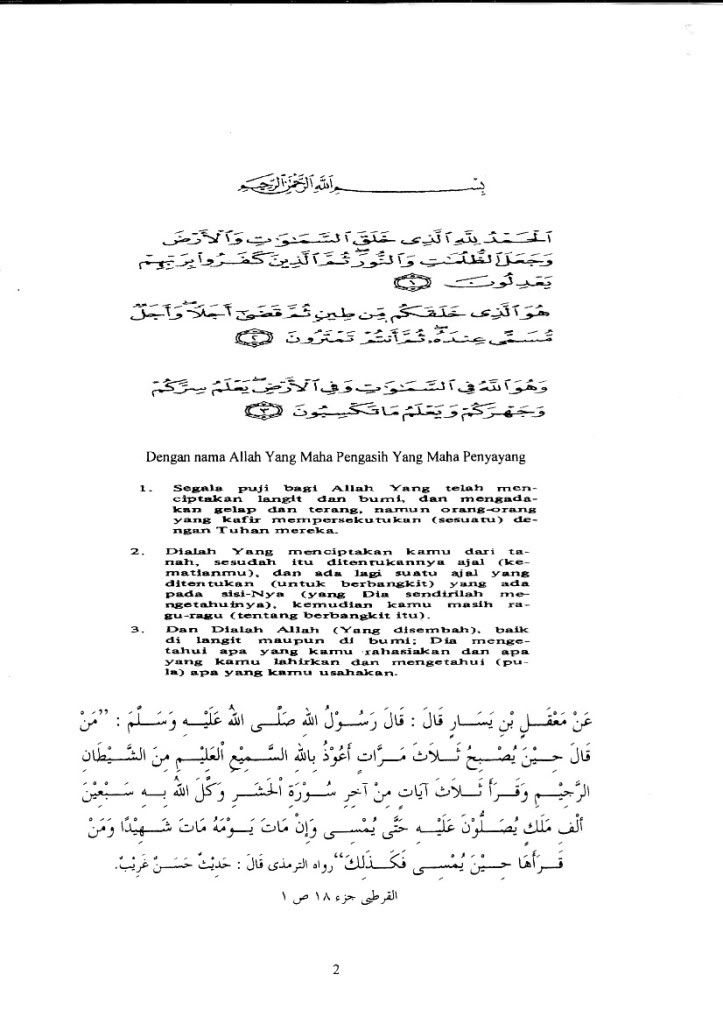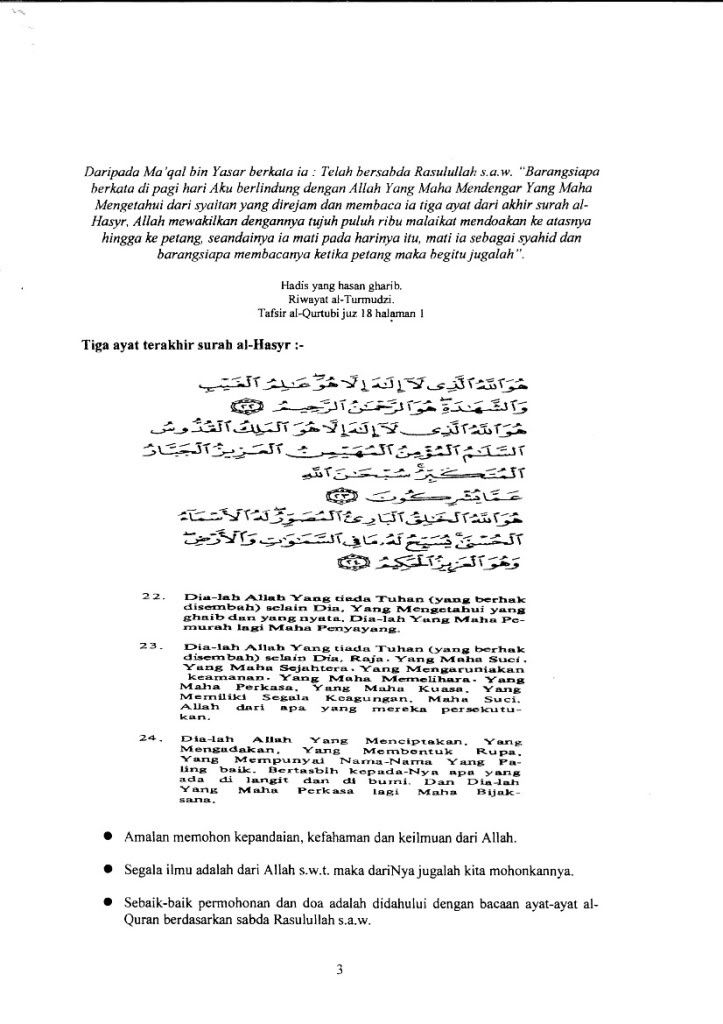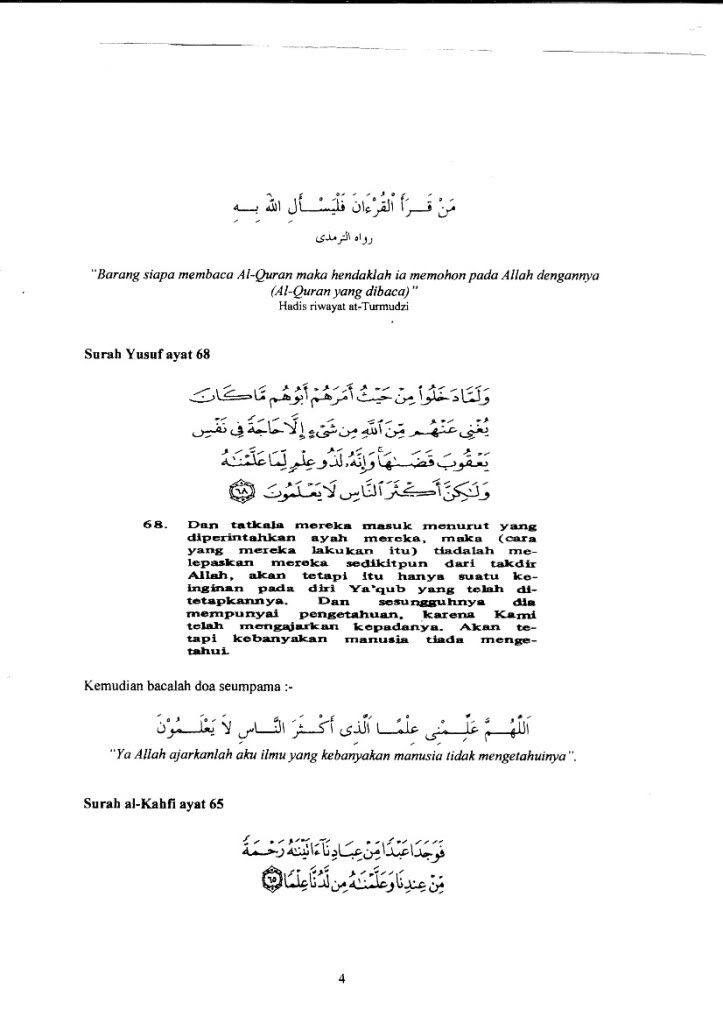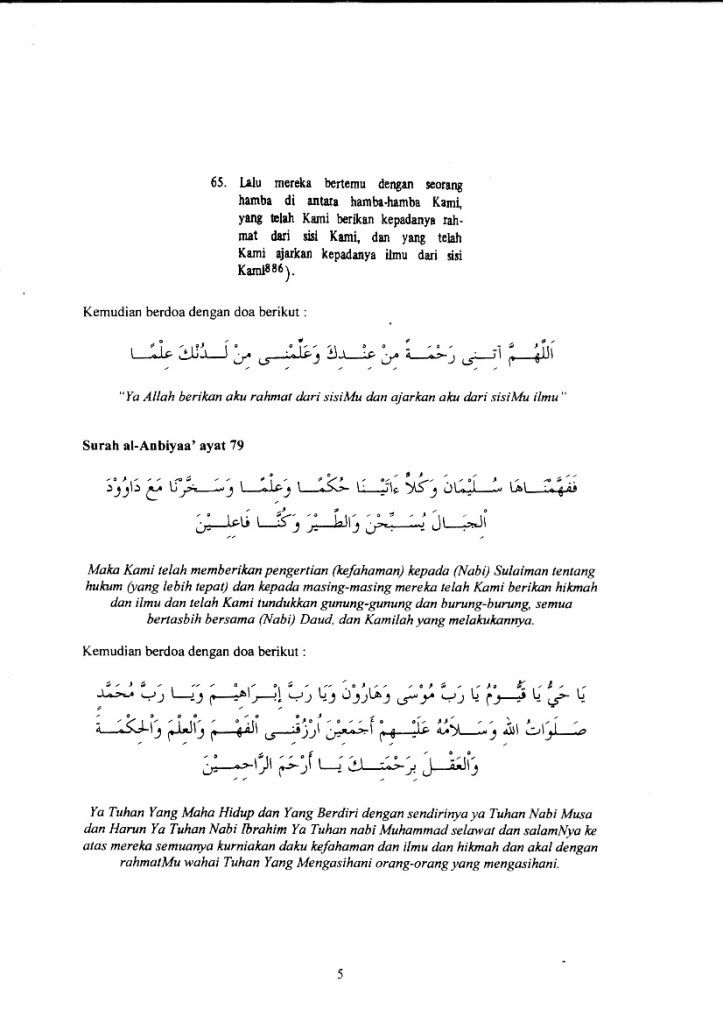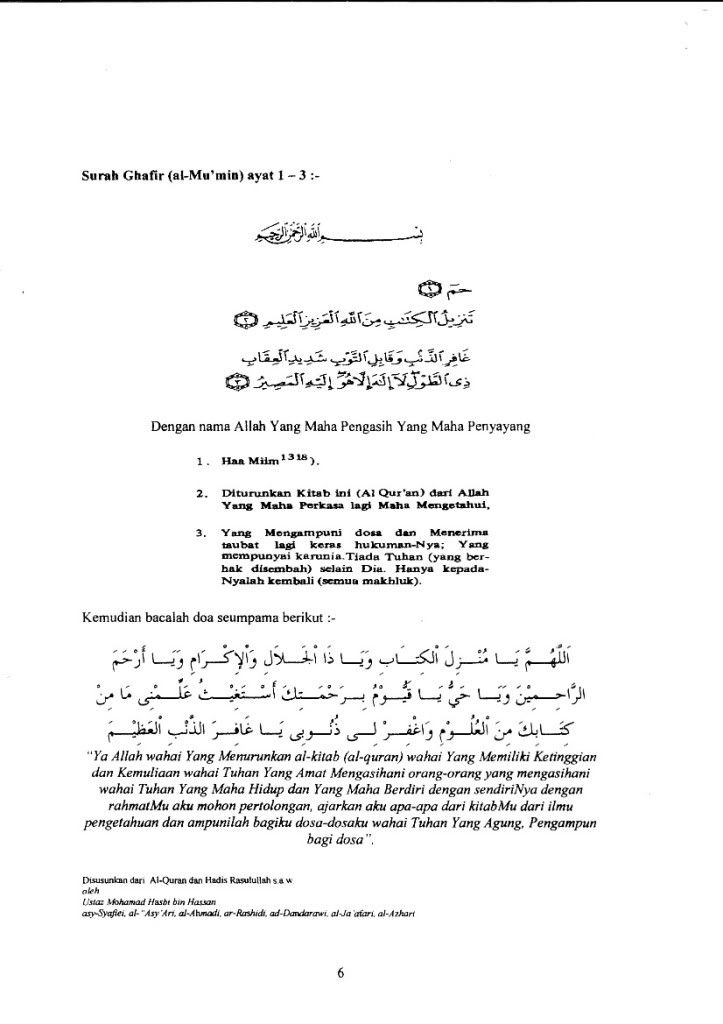AJAIBNYA KEADAAN SEORANG MUKMIN
“Tiap-tiap yang berjiwa akan merasakan mati. Kami akan menguji kalian dengan keburukan dan kebaikan sebagai cobaan (yang sebenar-benarnya). Dan hanya kepada Kamilah kamu dikembalikan.” Surat Al Anbiya` (35).
Pada ayat diatas Allah Ta`ala memberitakan bahwa selama kita masih hidup di dunia, pasti akan menemui tiga perkara yang sudah menjadi sunnatullah (ketetapan Allah), yaitu:
1. Mati
2 Diuji dengan keburukan
3 Diuji dengan kebaikan
Sebelum sunnatullah yang dalam bentuk kematian datang memutus kehidupan seseorang didunia, maka ia akan terus ditimpa oleh dua sunnatullah yang lainnya secara silih berganti, yaitu ujian dalam betuk kebaikan dan ujian dalam bentuk keburukan (musibah).
Alhamdulillah, kita diwarisi oleh Rasulullah Shalallahu `Alayhi wa Sallam Al Qur`an dan Assunnah sebagai sebagai pedoman hidup. Dimana dua pedoman hidup tersebut disusun langsung oleh sang pencipta kehidupan itu sendiri dan Dzat yang paling mengerti seluk beluk dan rahasia kehidupan yakni Allah Ta`ala melalui utusanNya Nabi Muhammad Shalallahu `Alayhi wa Sallam.
Diantara kandungan Al Qur`an dan Assuunnah ini, terdapat sebuah pedoman yang akan membimbing siapapun orang yang mengimani keduanya (kaum mukminin) agar dalam setiap sunnatullah (musibah dan kesenangan) tersebut selalu dalam keadaan beruntung (berpahala).
Dengan kata lain selama ia masih hidup di dunia ini, maka ia akan selalu beruntung baik ketika berhadapan dengan musibah atau dengan kesenangan. Oleh karena itu kita perlu mempelajari kembali Alqur`an dan Assunnah dalam masalah ini, agar kita dapat menyikapi setiap ujian-ujian tersebut dengan sikap yang tepat.
Suatu ketika Rasulullah Shalallahu `Alayhi wa Sallam pernah mengungkapkan kekagumannya terhadap keadaan kaum mukminin. Sebagaimana yang ditegaskan oleh beliau Shallallahu `Alalyhi Wasallam dalam sabdanya:
”Sungguh mengherankan perkara orang mukmin itu, sesungguhnya seluruh perkaranya adalah baik baginya. Dan hal itu tidak dimiliki oleh siapapun kecuali orang mukmin. Jika dia diberi sesuatu yang menggembirakan dia bersyukur, maka ia menjadi baik baginya. Dan apabila ia ditimpa suatu madharat, ia bersikap sabar, maka itu menjadi baik baginya.”(HR.Muslim)
Dalam hadits diatas, Rasulullah Shalallahu `alayhi wasallam memberitakan bahwa bagi seorang mukmin, baik didalam kesenangan maupun musibah, tetap ada peluang untuk beruntung (berpahala).
1.Ujian dalam bentuk kebaikan.
Dalam ujian model ini ada kewajiban bagi seorang mukmin padanya, yaitu bersyukur. Dengan memanfaatkan segala kenikmatan tersebut untuk ketaatan kepada Allah sehingga dengan sikap syukur atas kenikamatan itu, menjadikan ia akan semakin dekat dengan Allah dan inilah orang yang beruntung dalam ujian jenis ini.
Namun ada pula orang yang gagal dalam ujian jenis ini, yaitu orang yang dengan ujian ini justru semakin jauh dari Allah, yaitu ketika nikmat yang Allah berikan tersebut malah ia gunakan untuk durhaka dan maksiat kepada Allah, sehigga dengan nikmat tersebut ia justru semakin jauh dari Allah. Allah Ta`ala berfirman dalam surat Ibrahim (7):
"Dan (ingatlah juga), tatkala Tuhanmu memaklumkan; “Sesungguhnya jika kamu bersyukur, pasti Kami akan menambah (nikmat) kepadamu, dan jika kamu mengingkari (nikmat-Ku), maka sesungguhnya azab-Ku sangat pedih”.
2.Ujian dalam bentuk Musibah.
Dalam ujian model ini, juga ada kewajiban seorang mukmin padanya yaitu bersabar. Ketika bersabar dalam keadaan ini, maka sikap yang muncul adalah upaya untuk terus mengintrospeksi dan mengoreksi diri (bertaubat) atas dosa-dosa yang ia lakukan, sehingga selain mendapatkan pahala, sikap sabar ini juga dapat menggugurkan dosa-dosanya.
Sebagaimana sabda Rasulullah Shalallahu `Alayhi wa Sallam:
”Seorang muslim tidak ditimpa oleh rasa letih, penyakit, gelisah, sedih, gangguan ataupun kegundahan, hingga duri tertancap padanya melainkan Allah menebus dengannya sebagian dari kesalahan-kesalahannya. (HR.Bukhary & Muslim).
Maka dengan sikap sabar ini, ia akan semakin dekat kepada Allah dan inilah orang yang beruntung dalam ujian model ini.
Namun ada pula orang yang gagal dalam ujian model ini, yaitu ketika ditimpa musibah ia tidak mau mengoreksi dirinya (bertaubat), dan justru mengeluh dan tidak ridha dengan ketentuan Allah tersebut.
Ia merasa amalnya sudah baik semua dan dirinya bersih dari dosa, sehingga anggapannya itu menghambat dirinya dari upaya untuk taubat dan lebih dekat kepada Allah Ta`ala. Tentu sikap semacam ini tidak sesuai dengan tujuan Allah Ta`ala menurunkan musibah tersebut yaitu agar hambanya mau kembali (bertaubat) kepadaNya, sebagaimana yang Allah beritakan dalam surat Ar Ruum (41):
“Telah nampak kerusakan di darat dan di laut disebabkan karena perbuatan tangan manusia, supaya Allah merasakan kepada mereka sebahagian dari (akibat) perbuatan mereka, agar mereka kembali (ke jalan yang benar).”
Maka bagi seorang mukmin, kelezatan itu bukan hanya pada kenikmatan, tetapi juga ada pada musibah. Sebab dalam kenikmatan seorang mukmin itu berpeluang beruntung (berpahala) karena “syukurnya”, dan dalam musibah seorang mukmin juga berpeluang beruntung (berpahala) karena “sabarnya”.
Oleh sebab itu Alhamdulillah, seorang mukmin itu selama ia hidup di dunia akan selalu beruntung, baik dalam keadaan suka maupun dalam keadaan duka, hingga maut memutus kehidupannya di dunia.
Wallahu A`lamu Bishshawaab.









